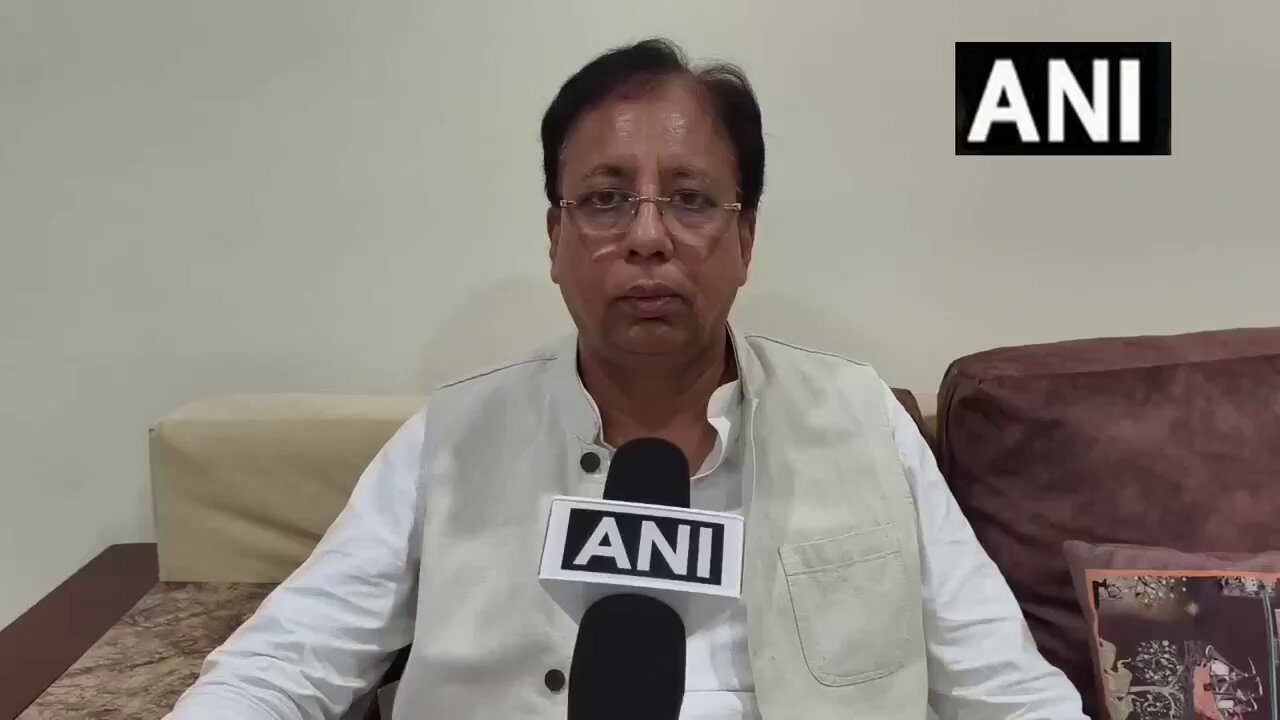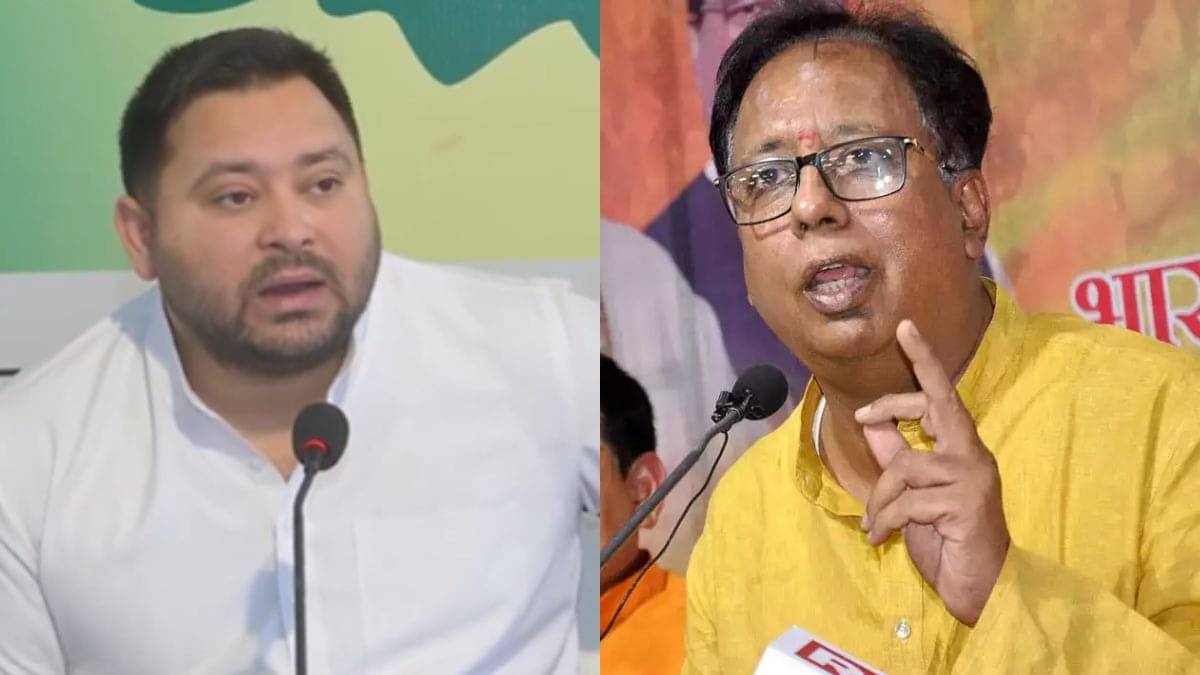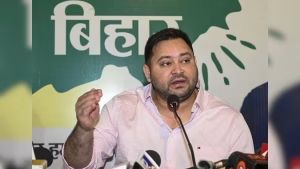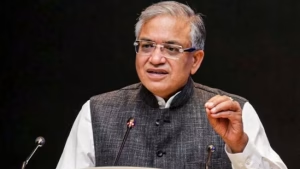Bihar – The political temperature in Bihar has escalated significantly following a sharp BJP On Tejashwi Yadav attack over the RJD leader’s controversial remarks regarding the Special Intensive Revision (SIR) of voter lists. BJP leader Sanjay Jaiswal launched a scathing critique of Tejashwi Yadav, demanding a public apology and characterizing the RJD leader as uneducated and irresponsible.
The BJP On Tejashwi Yadav criticism stems from Yadav’s dismissive comments about media reports claiming that the Election Commission’s SIR exercise revealed names of people from Bangladesh, Nepal, and Myanmar on Bihar’s voter lists. The controversy has intensified political tensions ahead of the upcoming assembly elections in the state.
Sanjay Jaiswal’s Harsh Assessment of Tejashwi Yadav

Speaking from Bettiah in Bihar, BJP leader Sanjay Jaiswal delivered a harsh assessment in his BJP On Tejashwi Yadav critique, stating that only Tejashwi Yadav could make such inappropriate comments about media personnel or any human being in general. Jaiswal attributed Yadav’s controversial statements to his alleged lack of education and proper guidance.
The BJP On Tejashwi Yadav attack included pointed observations about the RJD leader’s communication style. Jaiswal claimed that Tejashwi Yadav simply memorizes whatever his family members teach him and repeats it without understanding, leading to problematic statements when he is asked questions outside his prepared responses.
Demands for Public Apology and Behavioral Change


The BJP On Tejashwi Yadav criticism reached its peak when Jaiswal demanded that the RJD leader offer a comprehensive public apology. The BJP leader insisted that Tejashwi Yadav should publicly apologize, express genuine regret, and take an oath not to speak beyond what he is taught at home.
This BJP On Tejashwi Yadav demand reflects the serious nature of the political controversy and the BJP’s determination to hold the RJD leader accountable for his statements. The call for an oath represents an unusual escalation in political rhetoric, suggesting deep frustration with Yadav’s communication approach.
The Controversial “Sootra” Remark Explained


The BJP On Tejashwi Yadav controversy centers around Yadav’s dismissive response to claims about foreign nationals on Bihar’s voter lists. When questioned about Election Commission sources revealing names from Bangladesh, Nepal, and Myanmar, Yadav made a crude play on words, saying “Ye sootra ko hum mootra samajhte hai” (We consider these sources to be nonsense).
This statement prompted the sharp BJP On Tejashwi Yadav response, with party leaders viewing it as inappropriate and disrespectful toward media personnel and the democratic process. The remark has been characterized as crossing the boundaries of acceptable political discourse.
Tejashwi Yadav’s Defense and Counter-Allegations

Despite the BJP On Tejashwi Yadav criticism, the RJD leader stood by his position, questioning the credibility of sources making claims about foreign nationals on voter lists. Yadav drew parallels to previous false claims about capturing Pakistani cities, suggesting that the current allegations follow a similar pattern of misinformation.
The RJD leader’s response to the BJP On Tejashwi Yadav attack included historical context about the SIR process. Yadav emphasized that the Special Intensive Revision was last conducted in 2003 under the UPA government, and since then, multiple elections have taken place in 2014, 2019, and 2024, where the opposition lost by significant margins.
Also Read: Maharashtra Minister Sanjay Shirsat Shocking Cash Bag Video Sparks Political Row
Historical Context of SIR Process
In defending against the BJP On Tejashwi Yadav accusations, Yadav raised questions about the timing and implications of the SIR exercise. He pointed out that if foreign nationals were indeed voting, and the opposition consistently lost elections since 2003, it would logically mean that these foreign voters supported Prime Minister Modi and the NDA.
This argument forms a central part of Yadav’s response to the BJP On Tejashwi Yadav criticism, as he attempts to turn the tables on the ruling party by suggesting that any electoral fraud would have benefited the NDA rather than the opposition.
Allegations Against NDA Government
The BJP On Tejashwi Yadav controversy intensified when the RJD leader made serious allegations against the NDA government. Yadav claimed that if any dubious names were added to voter lists, the responsibility lies with the government that has been in power since 2005, pointing to the continuous rule of BJP and Nitish Kumar in Bihar.
Yadav’s counter-attack in response to the BJP On Tejashwi Yadav criticism included naming Prime Minister Modi and Union Home Minister Amit Shah, suggesting that their long tenure in power makes them responsible for any irregularities in voter registration processes.
Election Commission’s Role and Findings

The BJP On Tejashwi Yadav dispute occurs against the backdrop of Election Commission sources revealing significant findings during the SIR exercise. According to these sources, Booth Level Officers (BLOs) discovered a large number of individuals from Nepal, Bangladesh, and Myanmar with Aadhaar cards, domicile certificates, and ration cards during house-to-house visits.
This development has fueled the controversy, as the ruling party views these findings as validation of their concerns about electoral integrity, while the RJD leader dismisses them as politically motivated.
Investigation Timeline and Process
The Election Commission has outlined a thorough investigation process running from August 1 to August 30, with any verified names to be excluded from the final list scheduled for publication on September 30, 2025. The debate will likely continue throughout this investigation period as both parties prepare for the upcoming assembly elections.
The technical aspects of the SIR process involve BLOs who have already digitized and uploaded 4.66 crore Enumeration Forms in ECINet, the newly developed integrated software that has replaced 40 different ECI applications. This modernization effort adds another dimension to the electoral integrity discussion.
Political Implications for Bihar Elections
The timing of this controversy is significant as Bihar prepares for assembly elections later in the year. The heated exchange between BJP and RJD leaders reflects the high stakes involved in the upcoming polls, with both parties attempting to frame the narrative around electoral integrity and democratic processes.
The accusations and counter-accusations highlight the deep political divisions in Bihar, where issues of governance, electoral practices, and political accountability continue to dominate public discourse. The controversy also underscores the importance of the SIR exercise in ensuring clean voter lists.
Broader Questions About Electoral Integrity
The dispute raises broader questions about electoral integrity in India, particularly regarding the verification of voter identities and the prevention of fraudulent voting. The claims about foreign nationals possessing Indian identity documents highlight systemic challenges in maintaining accurate voter rolls.
The controversy also reflects ongoing tensions between the ruling party and opposition regarding the Election Commission’s role and independence. These debates are likely to intensify as the investigation progresses and the assembly elections approach.
Final Remarks: Political Discourse and Democratic Norms
The controversy surrounding the “sootra” remark and the subsequent political responses highlight the challenges facing democratic discourse in contemporary Indian politics. The incident demonstrates how electoral integrity issues can quickly escalate into broader political confrontations, affecting public trust in democratic institutions.
As Bihar prepares for its assembly elections, the resolution of this controversy and the completion of the SIR exercise will be crucial for maintaining public confidence in the electoral process. The ongoing investigation and its findings will likely play a significant role in shaping the political narrative leading up to the polls.

